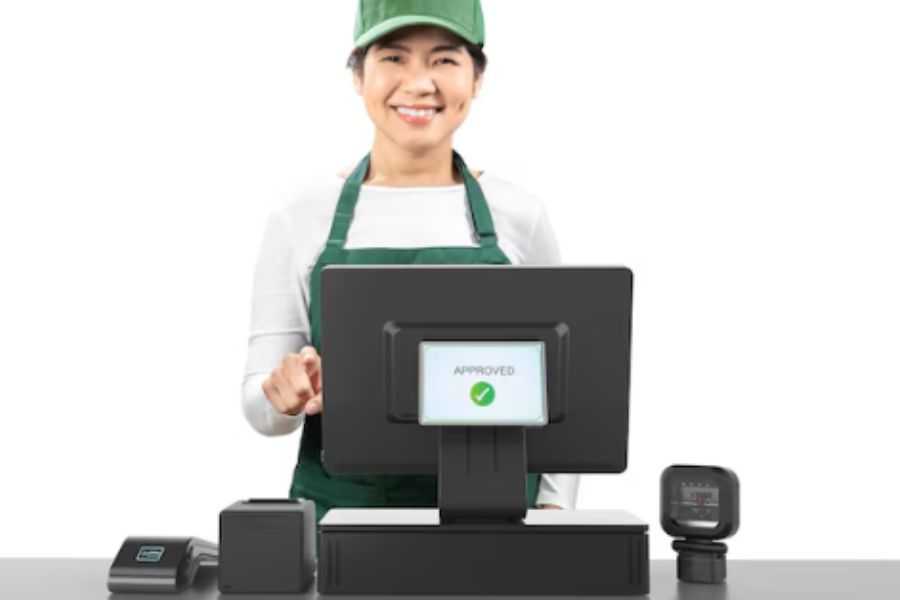What is a mobile POS?
The mobile POS refers to POS on wireless devices such as smartphones or tablets, which are able to function as a cash register or electronic POS terminal.
The main component of a particular mobile POS is an app and a card reader connected to that app. Once the POS app is installed, retailers can start selling and other hardware like barcode scanners, receipt printers, etc are also compatible.
Depending on the software businesses adopt, the mobile POS can support them to operate a stand-alone device that can be connected to their bank account or integrated into their legacy POS system
Advantages of mobile POS
- Boost sales revenue
Thanks to their portability, shopkeepers are able to increase their sales revenue by accepting payments from every location. In addition, mobile POS can also perform as a traditional POS, which allows retailers to create orders, prepare in-store pickup orders and home delivery, etc. As a result, retailers can not only create seamless shopping experiences for their customers but also smoothen the purchasing process.
- Save money budget
The mobile POS is believed to be much lighter and more affordable than traditional ones. Besides, typically retailers are required to obtain one hardware which is their mobile devices. Consequently, the cost to replace or fix a broken device is way cheaper than replacing a traditional POS machine.
- Save time budget
Mobile POS allows shopkeepers to track their products and detailed information in a flash by using the search bar or scanning barcodes. In other words, retailers can save more time from handling stock issues and effectively allocate it to customer services.
- Secure data
This innovation enables small businesses to secure and monitor their data through their software vendors. Retailers can not only reduce risks of security breaches but also simplify compliance with privacy and security regulations.

